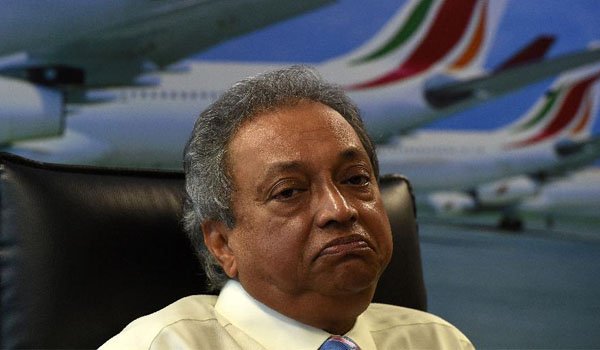Seven years later, SriLankan Airlines has racked up $3.25 billion in debt, and over the first three months of this year alone its losses have been in the ballpark of $112 million. In May, the Sri Lankan government announced that it would be selling four of its new Airbus A350s, and orders for four more were canceled, which resulted in a $170 million penalty.
In March, it was announced that Sri Lanka was looking for foreign investors interested in taking over their their beleaguered, debt-laden national carrier. In July, the government began taking offers for a 49% share and management control of the airline. According to the government, this is part of a broader strategy to privatize state companies and reduce national debt, but it seems more like a Morse code operator feverishly ticking out S-O-S aboard a sinking ship.
SriLankan Airlines has long been criticized for mismanagement since splitting from the joint venture. From appointing “unqualified political lackeys” to positions of power — which included then-president Mahinda Rajapaksa’s brother-in-law, who served as the airline’s chairman — to said former president using the airline as his personal charter service, to buying unneeded aircraft, to generally poor business decisions, Sri Lanka has struggled to profitably run the airline that bears its name.
This issue was no better manifested than the government forcing the airline to operate a second hub at Mattala International Airport between 2013 and 2015. This was Sri Lanka’s second international airport, which was built next to an elephant preserve in remote Hambantota — the site of a large-scale, multi-faceted development endeavor that has yet to gain momentum. This world-class airport lacked nothing except passengers, and was mainly used as a transit hub. According to a government report, an average of just seven passengers per flight were being served at Mattala throughout 2014, and stories abound about how planes would touch down there to neither pick up nor drop off anyone. Needless to say, this second, reportedly unneeded, hub hemorrhaged cash for SriLankan Airlines, and today the government is also looking for foreign companies interested in taking the entire loss-generating airport off their hands.
That said, half a dozen firms have submitted offers to take the Sri Lankan government up on their offer. Namely, the private equity firm TPG and BlackRock have shown interest in taking over SriLankan. The “winner” will be selected within a couple of months, according to a senior finance ministry official.
Apparently, SriLankan Airlines still has promise and may be salvageable. It has a fleet of 21 leased Airbus planes, attractive routes to India, and is based out of a country that is becoming a prime international tourist destination.
But Sri Lanka’s fiscal problems with its national carrier are indicative of a broader national financial crisis. The attempt to revitalize the economy via large-scale infrastructure projects has backfired and buried the country in so much debt that not even the government knows how much it owes. It has been reported that 95.4% of all government revenue is going towards debt repayment, which has resulted in a $1.5 billion IMF bailout.
Sri Lanka looking for a foreign partner to buy out and manage their national airline is also in step with a larger pattern of the country looking for foreign enterprises or governments to keep its projects and companies afloat. As mentioned above, Sri Lanka is also looking for a private partner to take over Mattala International Airport, the Hambantota deep sea port is ceding more and more control to Chinese shipping companies, as yet unrequited debt-for-equity swaps have been offered to some of the country’s biggest international financiers, the nation’s biggest and most promising infrastructure project is Chinese FDI, and 15,000 acres of land may soon be handed over to China to build an industrial zone. Sri Lanka is starting to resemble something between a going out of business sale and a salvage lot.
(Wade Shepard - forbes.com)






